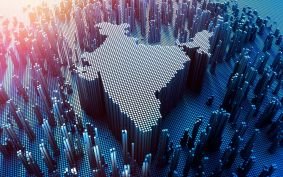Rebalancing and Reconnecting
Serving the corporate treasury community in the Netherlands for more than 25 years, the Dutch Association of Corporate Treasurers (DACT) has grown its membership by welcoming financial professionals whose career has brought them to the country and responding to societal changes. TMI learns more from two of the DACT’s team – and explores some of their recent projects.
Like its European neighbours, the Netherlands has felt the impact of resurgent inflation, soaring energy prices, and rising interest rates. Nevertheless, the country’s recent economic data compares well against that of several larger economies. Growth was 4.9% in 2021 and only slightly lower last year at 4.5%, while earlier this year inflation had fallen back below 5% – helped by a price cap on electricity and gas – while the UK was reporting double-digit inflation figures.
The economic outlook is slightly less promising, though. In March, Dutch government policy advisers forecast that economic growth would slow to 1.6% this year and 1.4% in 2024. However, the figure for the first three months of 2023 was far worse than anticipated with GDP contracting by -0.7% from the previous quarter as exports fell. Hopes that inflation might be coming under control were also dashed by the April figure, which accelerated to 5.2% from 4.4% in March.
“Traditionally the Netherlands has enjoyed a relatively strong economy and it recovered well from the pandemic,” says Erwin Bastianen, the Vice Chair and a board member of the Dutch Association of Corporate Treasurers (DACT). “But a major concern for Dutch businesses is the potential for a wage and price spiral to develop. Companies have contributed by using resurgent inflation to increase their margins and unions have responded with some aggressive wage demands.” A recent example was the 10% wage increase conceded by Dutch grocery chain Albert Heijn to avert a strike by distribution workers[1]. “So, there are fears that inflation will become disconnected from the main economy as companies could use it to pump up their margins.”
Sign up for free to read the full article
Register Login with LinkedInAlready have an account?
Login
Download our Free Treasury App for mobile and tablet to read articles – no log in required.
Download Version Download Version

































